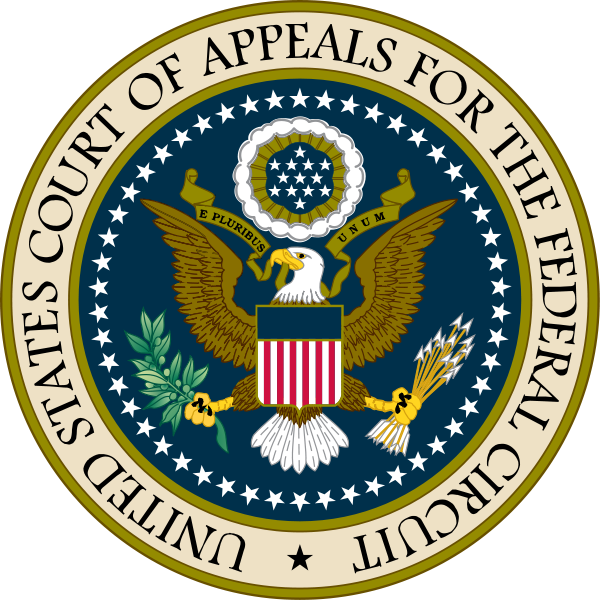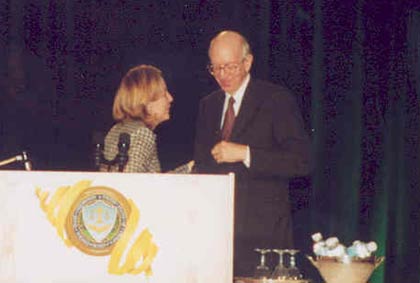10.12.12
Posted in America, Patents at 2:52 pm by Dr. Roy Schestowitz

Summary: Those who promote software patents are reluctantly revealing their dilemma
Dennis Crouch, a patents maximalist, writes an interesting post about software patents. He states: “I recently asked the courts for a decision on whether software is patentable. In my short essay, I argued that we have a de facto system that allows the issuance of software patents, but only after the innovative software elements are “hidden by innuendo and obfuscation.” This makes software patents “harder to find, harder to examine, harder to understand, and thus much more problematic than they need to be.””
So even software patents proponents admit this. It is important as it helps weaken their position. There is an anonymous account on Twitter which took the hastag swpats and currently uses it to promote software patents. The Financial Post and patent lawyers do not agree with the New York Times piece that Hugo of the FSFE summarises.
Here is a new example of the impact of patents on Cisco and Motorola, which became victims of a patent bully. As Masnick puts it: “Last year, we wrote about a crazy patent troll, named Innovatio, who had sued a ton of restaurants and hotels, claiming that anyone who used WiFi was violating its patents. It was even claiming that individuals who use WiFi at home infringed too — but that it wouldn’t go after them “at this time.” Instead, it preferred to focus on shaking down tons of small businesses, offering to settle for $2,500 to $3,000 — which is cheaper than hiring a lawyer to fight it, no matter how bogus. We noted at the time that Motorola and Cisco had gone to court to try to get a declaratory judgment to protect its customers.
“Well, it seems that the effort to stop these lawsuits has been taken to the next level. Cisco, Motorola and Netgear have now filed an amended complaint which rips Innovatio apart, and doesn’t just seek a declaratory judgment of non-infringement, but outlines a parade of lawbreaking by Innovatio, arguing that it’s actually involved in racketeering and conspiracy among other things.”
Motorola is often named as a patent aggressor (by foes like Apple and Microsoft), but the above helps show that even a company with a heap of patents is getting fed up, alleging “racketeering and conspiracy”. █
Permalink
 Send this to a friend
Send this to a friend
10.11.12
Posted in America, Patents at 2:12 pm by Dr. Roy Schestowitz

Summary: The Court of Appeals for the Federal Circuit (CAFC) gets publicity as it’s painted as a software patents proponent
Mike Masnick denounces CAFC, noting: “We’ve written many, many times about the problems created by the Court of Appeals for the Federal Circuit, CAFC, who (among other things) is the appeals court that has jurisdiction over all patent appeals. It’s a court that has been around for 30 years as of this week, and in the opinion of many, has been an unmitigated disaster. Of course, if you’re a patent lawyer or a patent troll, you might think the opposite. As we’ve discussed in the past, CAFC has spent the last 30 years massively helping patent holders by expanding the definitions of what was patentable, and generally being much, much, much more favorable to patent holders than appeals courts had been back when jurisdiction was split among the 12 difference circuit appeals courts. With its 30th anniversary this week, Tim Lee has written a post detailing how it “wrecked the patent system.” It’s a great read, covering a number of key points.”
Timothy B. Lee accuses CAFC of legalising software patents. He defends his allegation from a patent lawyer with a big mouth. To quote his piece: “Most of the time I ignore trolls in the hope they’ll go away. But patent attorney; Gene Quinn outright accuses me of lying in his response to my recent piece on how the Federal Circuit Court of Appeals wrecked the patent system. So I thought a quick response was in order. Here’s Quinn, arguing that my claim that “software was generally considered to be ineligible for patent protection” under pre-1982 Supreme Court precedents is “completely false.”” Gene Quinn is known as Patent Watchtroll here.
“…CAFC has spent the last 30 years massively helping patent holders by expanding the definitions of what was patentable, and generally being much, much, much more favorable to patent holders than appeals courts had been back when jurisdiction was split among the 12 difference circuit appeals courts.”
–Mike MasnickHere is what patent maximalists say: “The Federal Circuit has refocused its attention on the question of patentable subject matter and has ordered an en banc rehearing of CLS Bank Int’l. v. Alice Corp. (Fed. Cir. 2012). In its initial panel opinion, the Federal Circuit held that, when considered as a whole, the claimed data processing invention was patent eligible. Judge Linn wrote the majority opinion suggesting that a court should only reach Section 101 issues when subject matter ineligibility is “manifestly evident”. Judge Prost wrote in dissent and argued that the majority improperly ignored the Supreme Court’s most recent statements on the topic found in Prometheus. The patentable subject matter question in CLS Bank is virtually indistinguishable from the parallel issue in Bancorp v. Sun Life. In that case, however, the Federal Circuit ruled the invention ineligible.”
Mark Webbink, a law professor, says that “Federal Circuit to Consider the Patentable Subject Matter of Software”. Here is his personal stance: “While I feel we should be restrained in our expectations of the Court establishing a more limited view of software patentability, at least they are asking the questions and inviting broad input.
“This grant of rehearing vacates the July 9, 2012 decision of the Federal Circuit panel consisting of Judges Linn and O’Malley in the majority and Prost in the dissent. That decision was roundly questioned here and elsewhere (Patently-O and IPWatchdog).”
Pogson weighed in as well. On many occasions we criticised SCOTUS (e.g. [1, 2]), but perhaps CAFC too serves corporate interests. █
Permalink
 Send this to a friend
Send this to a friend
Posted in America, Patents at 2:02 pm by Dr. Roy Schestowitz

Summary: Patent dissent from sources of high authority and legal clout
Timothy B. Lee, an effective campaigner of sorts against artificial monopolies on ideas, tells us that Judge
Richard Posner (mentioned before in [1, 2, 3, 4] has gone on another rant about patents. Others covered that too and one writer says “Read Judge Posner” when he tries to back a position.
Posner had been quoted a lot by the press before he published an article that expresses his views. Even some judges are fed up with today’s patent system/s. █
Permalink
 Send this to a friend
Send this to a friend
Posted in America, Patents at 1:55 pm by Dr. Roy Schestowitz
Time for a rewrite…

Summary: Ugly new stories about the US patent system and where it all comes from, where it should go
Companies which are obscure try finding fame with patents [1, 2] and some go as far as suing.
Even Microsoft’s friends at Amdocs [1, 2] do this, but they cannot win in Europe with their software patents. To quote Silicon Republic, “Dublin-headquartered telecoms software company Openet has won a summary judgment in a US court in a lawsuit filed by software and services giant Amdocs. The court found that Openet’s software does not infringe Amdoc’s patents.”
One parasite got over a quarter of a billion dollars (260M) from Verizon, passing the cost to customers in the US. With a rather deceiving or ambiguous headline one writer tells us that “Oracle sues to ‘free’ users from patent claims,” but to clarify, it is an apparent troll (or similar). “Oracle has filed suit against Texas company Advanced Dynamic Interfaces, seeking to have an intellectual-property action it filed against 20 users of Oracle software tossed out of court.”
One has to wonder who really benefits from all that? Surely just a parasitical minority. Speaking of parasites, a new article about patents names the Rothschild dynasty. To quote: “Thanks in part to the borderline-esoteric nature of modern software patents, most Americans don’t know the strange and fascinating historym n of U.S. patent law and the lengths inventors once had to go to gain government protection for their creations. According to the Smithsonian Institution, which once housed the U.S. Patent Office, “American patent law in the 19th century required the submission and public display of a model with each patent application.” That meant that no matter how large or intricate the patented device would be when produced for sale, it needed to be rendered in miniature. (In the spirit of job creation, most of the models were made by craftsmen who set up shop just outside the Patent Office.) At one point, the Smithsonian was home to 200,000 such models. The largest collection now numbers just 4,000 and is owned privately by collector Alan Rothschild, who has lent his pieces to the Smithsonian.”
Companies still use patents for protectionism. The ruling class needs that. It is like the sewing suing machines all over again, this time in software form as we have general-purpose programmable computers. Some companies just sell patents as though they are merchandise.
Time to abolish patenting altogether, say some people. One type of patents at a time perhaps? Starting with software? Genetics? Business methods? █
Permalink
 Send this to a friend
Send this to a friend
Posted in America, Europe, Google, Patents at 1:35 pm by Dr. Roy Schestowitz

Summary: Examples from the press of anger directed at patents and a face-saving attempt from the USPTO to avert criticism
Web sites across the world challenge the idea that ideas can be ‘stolen’ as more and more people feel personally affected. “As the Apple vs. Samsung dispute wages on,” writes TuxRadar, “with both sides arguing about rounded corners and rectangles; for this week’s podcast, we want to know what can Linux really take from Apple?”
Apple wants billions in so-called ‘damages’ and unrest against patent law grows as even the New York Times calls for change, especially “When Patents Become Weapons”. There is an article titled “Smartphone wars: Patents are the new weapons” in Times of India and it is increasingly important when Microsoft partners like Infosys arm themselves. “How patents slow down the pace of technological innovation” is another noteworthy article from the Asian press.
“The premise that monopolies are beneficial for innovation is utterly flawed…”The legal press plays along with the broken patent system which is ignoring the actual source of the problem (patents are inherently problematic, not just the review process). Articles say that the USPTO is trying to patch up a broken system with help from Google. This latter article says that “Stack Exchange and Google are teaming up to make it easy for geeks to shoot down overbroad and ridiculous patents,” but this is not an effective approach as it helps further legitimise all those patents which cannot be shot down.
The USPTO has inherently philosophical problems. The premise that monopolies are beneficial for innovation is utterly flawed, so asking the public to participate is just adding insult to injury. This is not the first time that Google helps patent offices whilst also applying for more software patents. As one writer put it, “I don’t mean to come down on Google. Their patent policies are much better than those of most tech companies. But I bet most Google engineers — along with the overwhelming majority of software engineers in general — would agree with the following statement in a heartbeat: most software patents are total bullshit.”
People are getting broad patents on abstract ideas and Google does not do much about it except participate in this whole mess. Google is schizophrenic about it because lawyers join the engineers there. Google did this in the EPO too. This is where crucial debates carries on with software patents at stake. We will cover that in the next post. █
Permalink
 Send this to a friend
Send this to a friend
10.08.12
Posted in America, Microsoft, Novell at 10:45 am by Dr. Roy Schestowitz

Image by David Shankbone
Summary: The comeback of one who almost became synonymous with Microsoft antitrust
Many people oppose Microsoft not because of jealousy but because of reason. Some people are just better informed than others. One person who fought against Microsoft for its crimes is Mr. Boies and Groklaw says that in the Wordperfect case he will help show how Microsoft broke the law. He sure knows the history. To quote Jones: “In the appeal of the Novell v. Microsoft case, the one about WordPerfect, Novell has hired David Boies and Stuart Singer of Boies Schiller, adding that firm to the team. After watching and writing about Boies Schiller’s fancy dancing in the SCO saga, where it did a belly flop from the high dive, I assume you can imagine my reaction when I got the news. But, as Dylan sings, people are crazy and times are strange … I used to care, but things have changed. When Novell did that toxic patent deal with Microsoft, it was a sea change. I hope my inner thoughts prove unfounded. But to tell you the truth, they usually are on the money. It will not amaze me if Novell loses now, but it’s fine if I am proven wrong.”
Novell is a sellout, just like Miguel de Icaza. But the ‘old’ Novell has a fight to finish. To this date, Boies continues to serve in cases against Microsoft [1, 2]. █
Permalink
 Send this to a friend
Send this to a friend
10.06.12
Posted in America, Patents at 2:44 am by Dr. Roy Schestowitz
Summary: Reviewing the scope of patentability in some English-speaking nations
THE United States has been harbouring patent trolls under the low standards of that patent office which it facilitates. The US Congress, however, seems interested in moving away from the status quo. A study from a few weeks ago outlines options for tackling patent trolling. Here are some details: “The US Congressional Research Service has made a range of suggestions that aim to clarify the “fuzzy boundaries” of software patents and make it more difficult to abuse the patent system. The “notice function” of patents that usually demarcates a clearly defined field of intellectual property rights and provides clear information on these rights to competitors “has broken down in the IT sector”, the service said in a recently published 23-page overview of the current “patent trolls” debate. It is “economically infeasible or irrational” for defendants to search the entire field of existing patents to avoid infringement, explained the authors, adding that this puts trolls in a highly advantageous bargaining position when negotiating royalties.”
It is essential to dump software patents as their existence has been a major lifeline for patent trolls and they do not adhere to the boundaries of reasonable scope. In Australia it is under debate. The latest public consultation strives to determine what innovation patents are and Ben Sturmfels wants people to speak out against software patents, having done some campaigning in this area [1, 2]. Corporate FOSS backers have a say on this issue in the US. As Pamela Jones put it, “Patently O recently highlighted some activity in the software patent eligibility area in the case of CLS Bank v. Alice Corporation [PDF], where the Federal Circuit has once again utterly ignored the direction the US Supreme Court provided in In Re Bilski [PDF] and in Mayo v. Prometheus. Instead, it has come up with a new rule, one that throws open the doors to patentability that the higher court has been trying to narrow. CLS Bank has asked for a rehearing en banc [PDF] and Google has joined with Red Hat, HP, and Twitter to file an amicus brief [PDF] that I think you’ll find of interest, so I’ve done it as text for you.”
Twitter is no surprise in there. The USPTO is out of hand and attempts to fix it have so far been self-preserving for this rogue operation that only serves corporations, not people. █
Permalink
 Send this to a friend
Send this to a friend
07.17.12
Posted in America, Microsoft, Patents at 4:44 am by Dr. Roy Schestowitz

Summary: Lobbyists and US diplomats push the agenda of Microsoft by expanding the reach of software patents while fighting a ban on Xbox 360
THE BSA, a Microsoft front group, was recently seen lobbying regarding patents in the US, but this time we see it jumping to Microsoft’s defence a lot more directly in light of a legal fight Microsoft started against Motorola. As Motorola gets its way against Apple and Microsoft (cases dropped) we learn that the BSA lobbies again. To quote: “The Business Software Alliance (BSA) this week urged the US International Trade Commission not to issue market exclusion orders against certain gaming consoles, smartphones, tablet computers, and related technologies that use internationally recognized technology standards which Motorola says infringe on its patents, because it would have a chilling effect on competition and harm consumers, a press release by the Alliance stated.
“BSA submitted public-interest comments for the ITC to consider in investigations it is conducting into complaints Motorola has lodged against Microsoft and Apple (investigation numbers 337-TA-752 and 337-TA-745, respectively).”
It’s about the ITC and XBox 360.
“Based on Cablegate, those treaties are nothing more than imperialism and a form of corruption.”Others joined the BSA in their action regarding the US ITC. There are other fights at the ITC, which helps embargo products on behalf of US interests (it’s imperialist by design). Meanwhile we learn that more pressure is also put on New Zealand to legalise software patents there. To quote: “New Zealand’s lack of opposition to the “investor-state dispute provisions” in the Trans-Pacific Partnership Agreement (TPPA) is evident from a leaked draft negotiation text, says TPPA critic Jane Kelsey. However Kelsey acknowledges that New Zealand has not irrevocably signed up to provisions that would allow foreign investors to sue our government.
“She explains that the punctuation of the leaked document reveals much about the negotiation positions of TPPA parties.”
Based on Cablegate, those treaties are nothing more than imperialism and a form of corruption. How long will we see lobbyists batting like this not just in companies’ home countries but also abroad? Those treaties are against the interests of actual people; no sane person would tolerate them, but superorganisms such as corporations would. █
Permalink
 Send this to a friend
Send this to a friend
« Previous Page — « Previous entries « Previous Page · Next Page » Next entries » — Next Page »
























 Content is available under CC-BY-SA
Content is available under CC-BY-SA